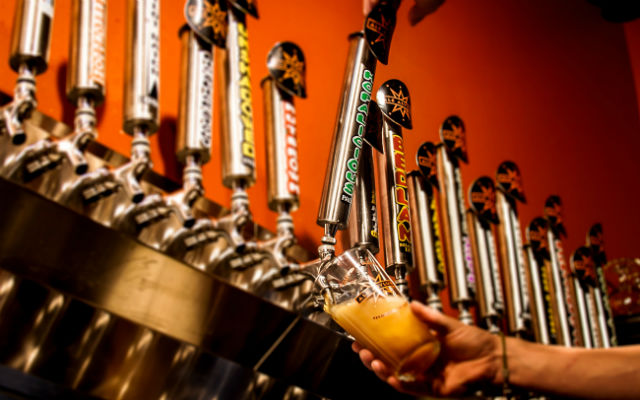
Be it a new consumer, an old faithful customer or anything in between, a lot of the time your taproom servers are the first line of communication to your brand. Having them be knowledgeable and friendly can help further someone into your story.
“While beer knowledge is, of course, something we look for when hiring new beertenders, hospitality and customer service is always a priority — those skills are harder to teach, and understanding beer is something that training and education can improve,” pointed out Monday Night Brewing’s Carlen Funk, who is the Tasting Room Director for the Atlanta-based brewery. “Our beertenders love and enjoy beer, but making sure they have the production team as a resource for that beer knowledge is crucial for the growth of our company.”
When new beertenders join the Monday Night team, the brewery’s Senior Taproom Manager — Jerry McCall — takes them through a basic training: the history of the brand, the brewing process, pouring a pint, and most importantly, making sure they understand the customer service standards that are in line with the brewery’s core values.
“We also do quarterly mandatory trainings for all beertenders that allow us to delve deeper into specific beer and service related topics. Whenever we release a new beer, our Head Brewer (Peter Kiley) works with our Brand Coordinator (Aaron Williams) to produce a short video about that beer,” Funk noted. “We show it to all of the members of our taproom team to educate them on the new beer. It’s a great opportunity for them to learn something, and it also gives them the confidence to pass that knowledge on to our patrons.”
Here are some other breweries and how they help spread education to their beer server staffs.
Oliver Adams, Operations Manager — Mother Road: “We typically break our education down into three sections. The first is an intensive day on the Mother Road brand, history, and culture, in which many members of the team participate in welcoming new hires. The second is a series of trainings that focus on hospitality, craft beer, and our specific operations. Finally, we take deliberate time to conduct in-house training on the brewing process, draft systems, sensory/off-flavors, and liquor laws. In addition, we pay for their Cicerone Certified Beer Server training.”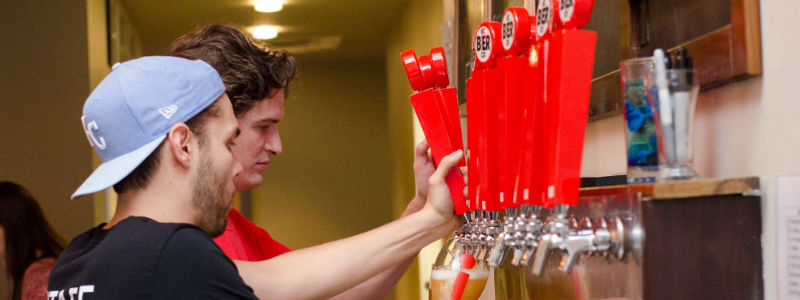
Jon Szajnuk, Tasting Room Manager — Bozeman Brewing: “Some, but not all of our employees are Cicerone Certified beer servers. We use a lot of similar information to inform our training techniques and policies within the tasting room. We hold quarterly “family meetings” and choose a specific topic to address such as off-flavor kits, Brewer’s Association pamphlets and our brewers themselves to clarify how to best explain our beers and brewing processes to guests. We also encourage those that are willing and able, to shadow the brewer on a brew day and ask all the questions that come to mind. The best way to address the learning curve from new hire to expansive knowledge comes down to hiring individuals passionate about our beer and a desire to disseminate that information to the guests that seek out more information about the beer, the process or our history.”
Penn Brewery: “Server and Bartender training includes getting to know all beer styles and how we make them,” the brewery said in an email. “More in depth training takes place with one of the brewers. New styles and brews are discussed, tasted and tech sheets are distributed. Service team is the first, and often only, “face” of the brewery. The biggest challenge in educating the service team is getting them to understand the processes and product to a confident and competent level, enabling the server to suggest and guide the consumer on what we have to offer. This is especially difficult with non-beer-drinkers.”
Dan Shapiro, Events & Sponsorship Coordinator, Angel City Brewery: “We know that building a great brewery is about creating a collaborative environment — that’s why we try to break down any barriers between the brewhouse and the taproom. The staff is encouraged to ask questions of the brewers, and everyone has an opportunity to brew with them so that they can understand the process. We believe that giving taproom servers these resources enhances the experience for the guest because the servers are truly invested in our beers.”



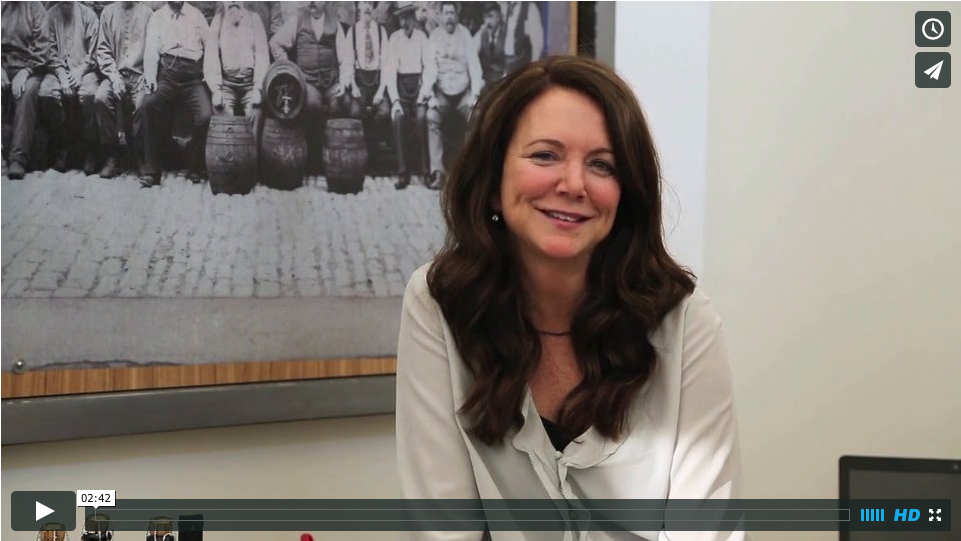
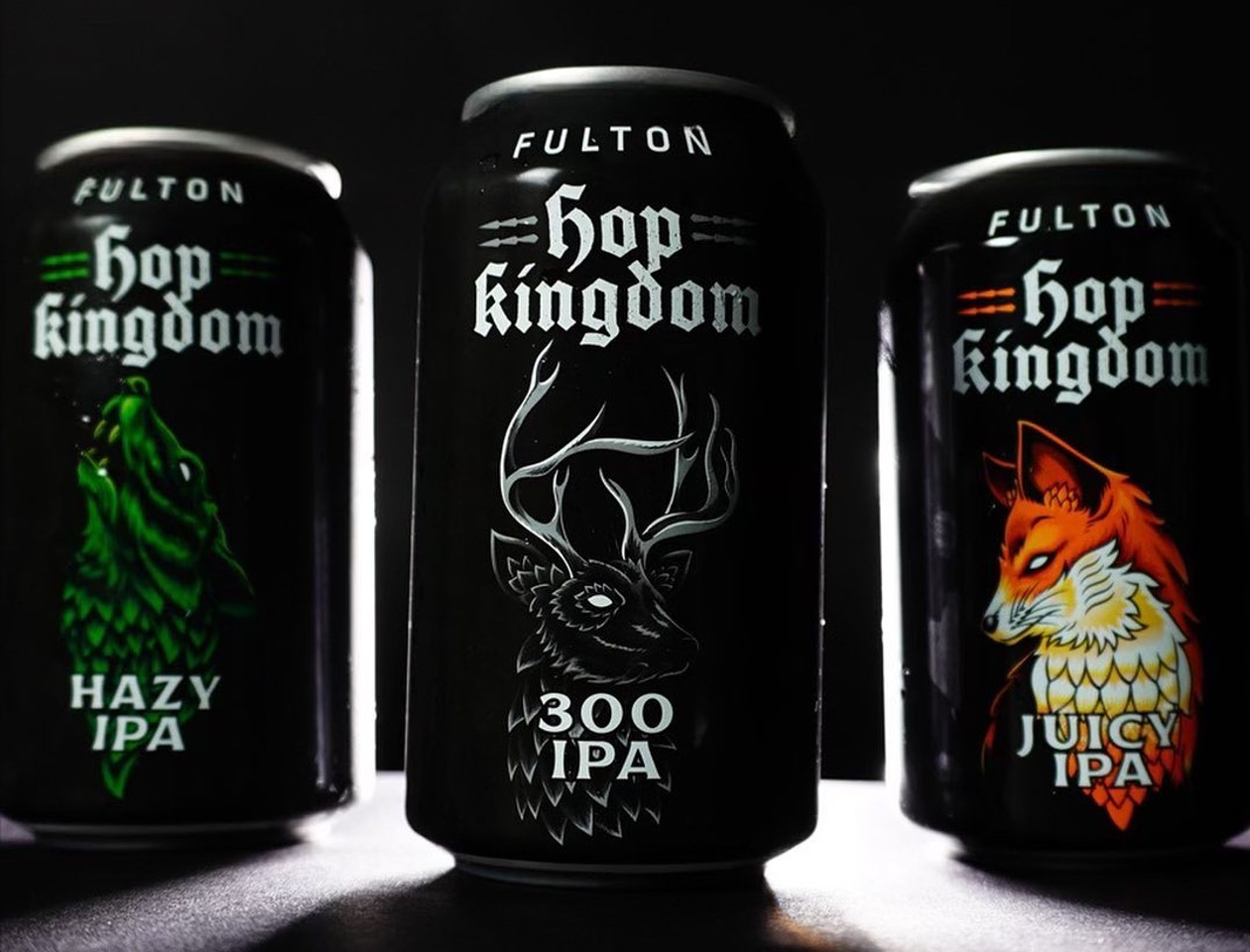
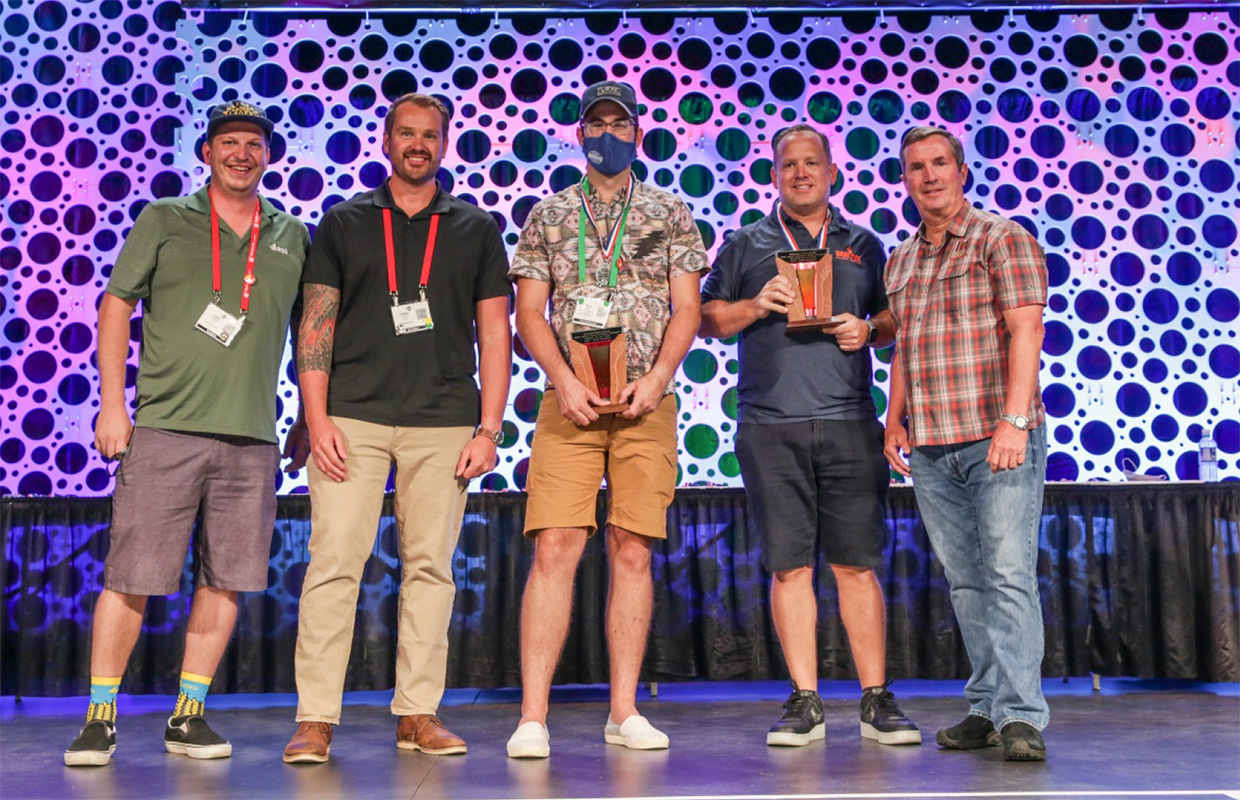
Be the first to comment